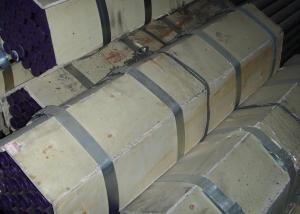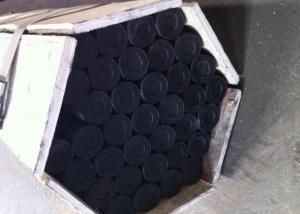Seamless Carbon Steel Tubes
- Loading Port:
- China Main Port
- Payment Terms:
- TT or LC
- Min Order Qty:
- 20MT m.t.
- Supply Capability:
- 5000 Tons Per Month m.t./month
OKorder Service Pledge
OKorder Financial Service
You Might Also Like
Usage/Applications: For manufacture wall panel,economizer,reheater,superheater and steam pipeline of boilers. | |||||||||||||||||||||||||
Packaging & Delivery:
Each bundles pipes will be bundled with 6-8 pcs steel strips and with shipping marks and 2 nylon strips
40-50 days delivery on china port upon receiving orinigal LC or prepayment.
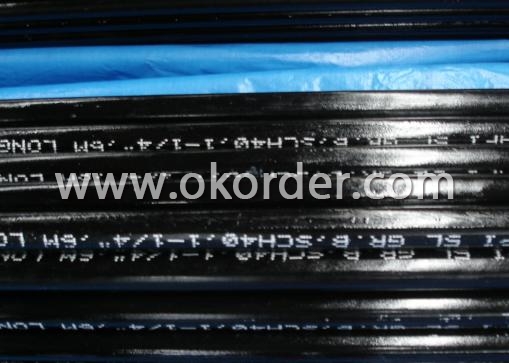
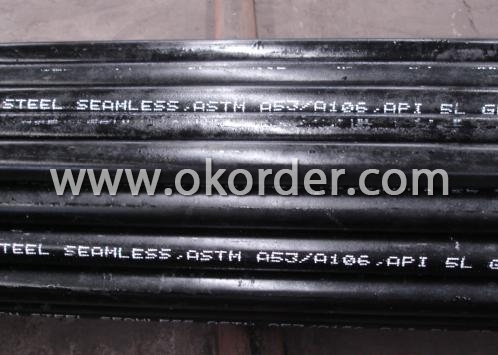
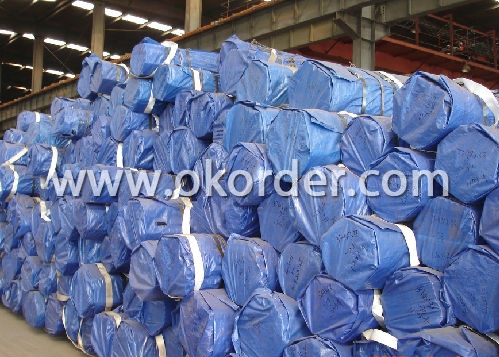
- Q:What is the difference between cast iron and steel pipes?
- Cast iron pipes and steel pipes are commonly used in plumbing and construction, but they have distinct differences. Let's explore these disparities. 1. Composition: Cast iron pipes consist mainly of an iron alloy, with small amounts of carbon and other elements. Conversely, steel pipes are primarily composed of iron, but they also contain varying amounts of carbon and other alloying elements like manganese, chromium, and nickel. 2. Strength: Steel pipes generally surpass cast iron pipes in strength due to their higher carbon content and alloying elements. This makes steel pipes more suitable for high-pressure applications or areas with heavy loads. 3. Flexibility: Compared to cast iron pipes, steel pipes offer more flexibility, making installation and adjustment easier. Cast iron pipes, being brittle, are less flexible and more prone to cracking or breaking under excessive stress or impact. 4. Corrosion resistance: Steel pipes are usually more prone to corrosion than cast iron pipes. However, this can be mitigated with various protective coatings or treatments applied to the steel pipes. Cast iron pipes, on the other hand, possess inherent corrosion resistance due to the formation of a protective layer of rust on their surface. 5. Noise insulation: Cast iron pipes excel in noise insulation due to their dense and heavy composition. This makes them ideal for reducing noise in residential plumbing systems. Steel pipes, being lighter and less dense, do not offer the same level of noise insulation. 6. Longevity: When properly maintained, cast iron pipes have a lifespan of over 100 years. Steel pipes, while still durable, may have a shorter lifespan depending on factors like the quality of the steel used, environmental conditions, and maintenance practices. In conclusion, the primary differences between cast iron and steel pipes lie in their composition, strength, flexibility, corrosion resistance, noise insulation, and longevity. The choice between the two depends on specific requirements, such as desired strength, durability, and noise reduction properties.
- Q:What are the different grades of steel used in pipe manufacturing?
- There are various grades of steel used in pipe manufacturing, including carbon steel, alloy steel, stainless steel, and duplex steel.
- Q:What is the difference between carbon steel and stainless steel pipes?
- Carbon steel pipes are made primarily from carbon and iron and are known for their strength and durability. However, they are prone to corrosion over time. On the other hand, stainless steel pipes are made from a combination of iron, chromium, and nickel, which makes them highly resistant to corrosion. Stainless steel pipes are also known for their aesthetic appeal, as they have a sleek and shiny appearance. Overall, the main difference between carbon steel and stainless steel pipes lies in their corrosion resistance properties.
- Q:What is the role of steel pipes in the mining and extraction of minerals?
- Steel pipes play a crucial role in the mining and extraction of minerals. They are widely used in various mining operations to transport water, slurry, and other fluids, as well as to provide structural support and ventilation in underground mines. One of the primary uses of steel pipes in mining is for transporting water or slurry. Water is essential in the mining process for various purposes, such as dust suppression, ore processing, and site rehabilitation. Steel pipes are used to create a network of pipelines that transport water from a source, such as a dam or reservoir, to different areas within the mine site. Similarly, slurry, a mixture of water and crushed minerals, is often transported through steel pipes to processing plants or tailings dams. Steel pipes also play a critical role in providing structural support in underground mines. Underground mining operations require tunnels and shafts to access valuable mineral deposits. These tunnels and shafts need to be reinforced to withstand the immense pressure exerted by the surrounding rock and prevent collapses. Steel pipes are used as support structures, such as roof bolts and rock bolts, to reinforce the walls and roofs of these underground excavations, ensuring the safety of miners and the stability of the mine structure. Additionally, steel pipes are used for ventilation systems in underground mines. Proper ventilation is vital in mining to ensure a constant supply of fresh air, remove harmful gases, and control temperature and humidity levels. Steel pipes are used to create ventilation shafts and ducts that facilitate the flow of air throughout the mine. This helps maintain a safe and healthy working environment for miners by preventing the buildup of toxic gases, dust, and heat. In summary, steel pipes are indispensable in the mining and extraction of minerals. They are used for transporting water, slurry, and other fluids, providing structural support in underground mines, and facilitating ventilation systems. Without steel pipes, the efficient and safe extraction of minerals from mines would be significantly hindered.
- Q:How do steel pipes handle water erosion?
- Steel pipes are highly resistant to water erosion due to their inherent strength and durability. The smooth surface of steel pipes minimizes friction and turbulence, reducing the likelihood of erosion. Additionally, steel pipes can be coated with protective layers, such as galvanization or epoxy, that further enhance their resistance to water erosion.
- Q:Can steel pipes be used for underground transportation tunnels?
- Underground transportation tunnels can indeed utilize steel pipes. For a multitude of purposes like water, gas, and sewage transportation, steel pipes are commonly employed in the construction of these tunnels. Renowned for their resilience, durability, and ability to resist corrosion, steel pipes are remarkably suitable for underground applications. With the capacity to endure the weight and pressure exerted by the nearby soil, they can also be reinforced to guarantee stability. Moreover, steel pipes offer flexibility in tunnel design as they can be manufactured in various sizes and lengths. Nonetheless, one must carefully consider factors such as soil conditions, load-bearing capacity, and potential environmental impacts before opting for steel pipes in underground transportation tunnels.
- Q:What is the difference between hot dip galvanized steel pipe and galvanized steel pipe?
- 1, the process is different, one is chemical treatment, one is physical treatment; hot-dip galvanized coating is reliable, not easy to fall off2, hot-dip galvanized coating thickness, so strong corrosion resistance. And zinc plating (electroplating) coating evenly, surface quality is better, coating thickness is generally between a few microns to more than ten microns.3 hot galvanizing is a chemical process, which belongs to electrochemical reaction. Zinc plating is a physical treatment, just brush a layer of zinc on the surface, there is no galvanizing inside, so the zinc layer is easy to fall off. Hot-dip galvanizing is used in building construction.4 、 hot galvanized pipe is to make molten metal and iron matrix reaction and produce alloy layer, so that the substrate and coating two combination.
- Q:What are the different methods of cleaning steel pipes?
- There are several methods of cleaning steel pipes, including mechanical cleaning, chemical cleaning, and high-pressure water jetting. Mechanical cleaning involves the use of brushes, scrapers, or other abrasive tools to remove dirt and debris from the pipe's surface. Chemical cleaning involves the application of solvents or acids to dissolve tough stains or residues. High-pressure water jetting uses a powerful stream of water to dislodge and remove contaminants from the pipe. These methods can be used individually or in combination depending on the specific cleaning requirements.
- Q:What are the different methods of pipe repair for steel pipes?
- There are several methods for repairing steel pipes, including spot repair, slip lining, pipe bursting, and pipe relining. Spot repair involves cutting out and replacing a small section of the damaged pipe. Slip lining involves inserting a smaller diameter pipe into the existing pipe to reinforce it. Pipe bursting involves breaking the old pipe while simultaneously installing a new one. Pipe relining involves inserting a liner into the damaged pipe and then curing it in place to create a new, seamless pipe within the existing one. The choice of method depends on the extent and location of the damage, as well as budget and time constraints.
- Q:What are the different types of coatings applied to steel pipes?
- There are several types of coatings that can be applied to steel pipes. Some common ones include fusion-bonded epoxy (FBE) coating, polyethylene (PE) coating, polypropylene (PP) coating, and zinc coating. These coatings serve various purposes such as corrosion protection, insulation, and enhancing the pipe's durability.
1. Manufacturer Overview |
|
|---|---|
| Location | Wuxi, China |
| Year Established | 1991 |
| Annual Output Value | 300,000Tons |
| Main Markets | Europe; Southeast Asia; etc. |
| Company Certifications | API 5L;API 5CT;API Q1;ISO/TS29001 |
2. Manufacturer Certificates |
|
|---|---|
| a) Certification Name | |
| Range | |
| Reference | |
| Validity Period | |
3. Manufacturer Capability |
|
|---|---|
| a)Trade Capacity | |
| Nearest Port | Wuxi; Shanghai |
| Export Percentage | 41% - 50% |
| No.of Employees in Trade Department | 3900-4000 People |
| Language Spoken: | English; Chinese; Spanish |
| b)Factory Information | |
| Factory Size: | Above 450,000 square meters |
| No. of Production Lines | Above 10 |
| Contract Manufacturing | OEM Service Offered;Design Service Offered |
| Product Price Range | Average |
Send your message to us
Seamless Carbon Steel Tubes
- Loading Port:
- China Main Port
- Payment Terms:
- TT or LC
- Min Order Qty:
- 20MT m.t.
- Supply Capability:
- 5000 Tons Per Month m.t./month
OKorder Service Pledge
OKorder Financial Service
Similar products
New products
Hot products
Related keywords

